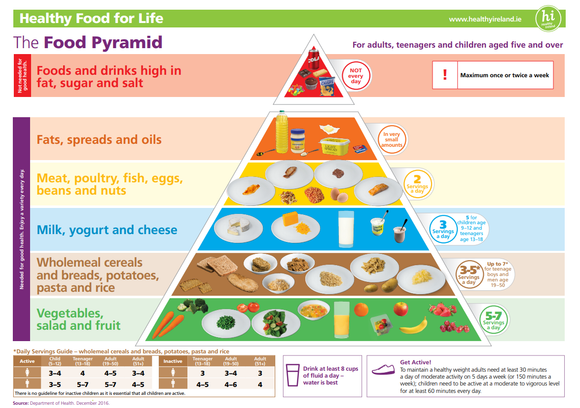Diet & Nutrition for Orthopaedic Patients

The Food Pyramid
The Food Pyramid provides a guide of what food is required on a daily basis to ensure a balanced diet. As you recover, you will require adequate protein, carbohydrates, fats, vitamins and minerals to ensure optimum healing. Adhereing to the food pyramid is a good method of ensuring that you reaxch these targets.
By the time you leave the hospital you should be eating your regular diet. It is normal to loose your appetite following surgery, if it has not recovered by the time you are leaving hospital you may require nutritional supplements.
Constipation is a common complaint following surgery, caused by a change in diet pain medication and inactivity. Laxatives and stool softeners may need to be taken for a couple of weeks. It is important to increase the ammount of fiber and water in your diet to ensure regualr bowel function.








